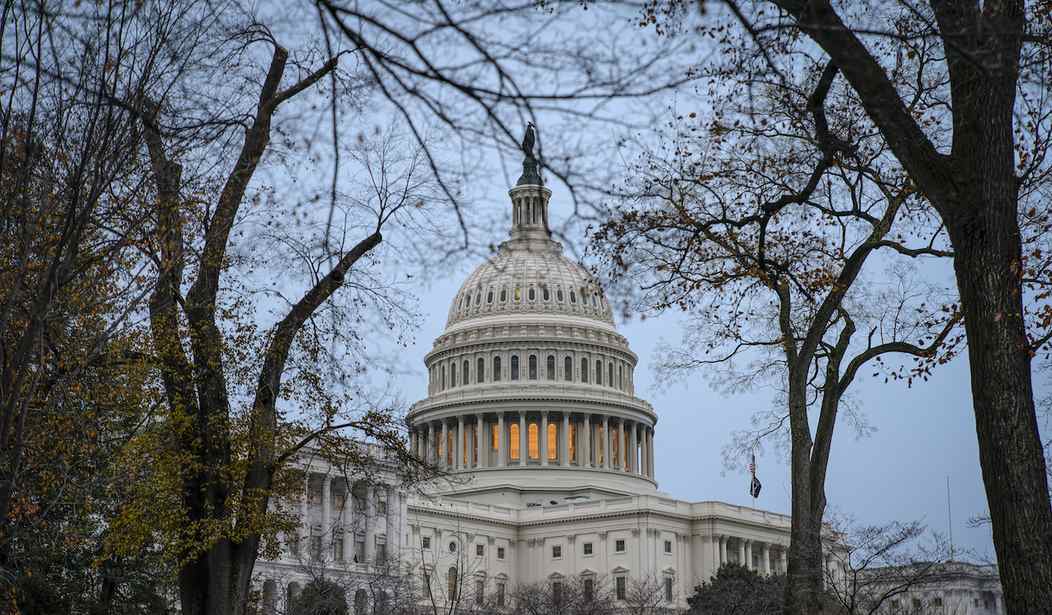This past week, Democratic representatives on the Hill unveiled the text of a colossal $1.5 trillion infrastructure bill. Dubbed the Moving Forward Act, the plan offers a mile-long shopping list for federal spending—from clean energy to the postal service. But the flurry of ambitious projects draws attention away from the fact that businesses, workers, and consumers across the country are still reeling from the COVID-19 downturn. Rather than ignoring the crisis, lawmakers on Capitol Hill need to put economic revival and consumer choice first.
The Moving Forward Act builds upon the House’s previous INVEST in America Act, which sought to offer almost $500 billion towards transport infrastructure. In addition to the transport provisions, the bill now includes over $100 billion for affordable housing, $100 billion for broadband infrastructure, and expands renewable energy tax credits. In unveiling the legislation late last week, Speaker of the House Nancy Pelosi described the bill as “job creating” and hoped to have the bill passed by July 4th.
The problem with the bill is that it is a product of its creation. Rather than constituting a clear-eyed, targeted approach to rebuilding the economy, the Moving Forward Act resembles an aggregated cash-grab that is out of touch with America’s economic reality. The Speaker is absolutely correct: doling out $1.5 trillion will no doubt create jobs. But for whom?
While it appears that the economy is slowly recovering, just last month the unemployment remained in double digits. Will the hundreds of thousands of laid-off hairdressers and chefs retrain to build bridges and roads, while their customers watch as local businesses close? When firms fail, consumers face less competition for their business, fewer choices, and higher prices.
To add insult to injury for struggling businesses, the Moving Forward Act offers a $25 billion reward to the perpetually embattled US Postal Service. USPS has lost $69 billion over the past 11 years and, according to the federal Government Accountability Office, efforts to trim costs will be insufficient to make the Postal Service profitable again. Pouring additional money into an enterprise that has been failing for over a decade constitutes a fiscal slap in the face to main street businesses and employees who have been blindsided by the pandemic.
Recommended
Unsurprisingly, a bill that prioritizes the interests of House lawmakers over businesses and consumers has invited a swift rebuke from industry groups. The Association of American Railroads, for example, has lamented the raft of retrograde restrictions on freight transport that are nestled behind the bill’s eye-catching figures.
Although Speaker Pelosi has been quick to tout the bill’s green credentials, the Moving Forward Act would provide an opportunity to limit transporting liquified natural gas (LNG) by rail—despite the fact that LNG produces significantly less greenhouse emissions than conventional coal. Overall, transporting goods via railroads is much more environmentally-friendly than trucks, but, unlike interstate highways, rail tracks are privately built and maintained.
That is not to say that many of the bill’s ambitions aren’t laudable; there is bipartisan recognition that America’s infrastructure needs investment. Similarly, telehealth and distance learning offer consumers greater choice, but are often predicated upon reliable and accessible internet. However, the benefits of the bill are outweighed by its disregard for the challenges businesses face in the wake of the pandemic and, in some cases, the imposition of additional restrictions.
Instead of recycling the usual list of pie in the sky spending targets, House lawmakers need to demonstrate to businesses, workers, and their consumers how this $1.5 trillion wish list helps them survive the crisis.
Oliver McPherson-Smith writes for the American Consumer Institute, a nonprofit educational and research organization. For more information about the Institute, visit www.TheAmericanConsumer.

























Join the conversation as a VIP Member